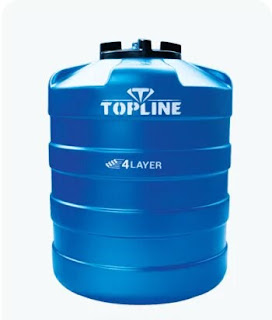Why Stainless Steel Water Storage Tanks Are So In Demand?
There are several factors to consider when purchasing a storage tank for your company. Cost, size, and location are the three most critical concerns for most company owners. The importance of these is undeniable, but they are not the first. Construction materials must be considered before deciding on a tank's cost or size. Various materials including concrete, steel, and polyethylene are used to make water tanks, each of which has its own merits. Stainless steel tanks, on the other hand, are generally regarded as the finest option. Why? If you have any questions, you may find the answers in the post.
The advantages of a stainless steel water tank will be discussed in further detail in this section.
Corrosion resistance
Steel, concrete, and plastic cannot compare to the corrosion resistance of stainless steel. Water and biocides have no effect on this material, making it an excellent choice for any company that deals with water or other corrosive substances. Also, stainless steel water tanks do not need an exterior or interior coating.
Stainless steel tanks have great resistance to cavitation, crevice corrosion, and wear and tear in polluted and clean water, making them very durable and long-lasting. Despite being exposed to a broad variety of temperatures and pressures, this material maintains its ductility. It is resistant to heat and radiation, and will not degrade with time. In addition, stainless steel water tanks pose no danger of freezing, rusting, or splitting, making them ideal for storing water.
Safe
Stainless steel is a safe metal alloy that can be recycled, making it a green material. It's been a long time since we've seen significant progress in the manufacture of stainless steel. These innovations concentrate on the utilization of renewable resources and energy. Biodegradable and recyclable, new stainless steel water tanks often include 60-70% recycled material. This also helps manufacturers and consumers reduce their carbon footprints.
More hygienic
Concrete storage tanks are the most desired since they are more cost-effective and hence more hygienic. Many users, on the other hand, aren't aware of its unsanitary aspects. Bacterial growth, mold development, and chemical leakage are all possible outcomes of using concrete storage tanks. Toxic calcium is leached from these tanks since they're made of a porous material. Stainless steel, on the other hand, is a very sanitary metal. Due of its excellent passive film stability, it is impermeable to water. No leakage occurs despite the fact that stainless steel (SS) leaches alloying elements (Ni and Cr). Since it's sanitary, it's better for your health than a concrete water tank.
Sleek appearance
Concrete, plastic, and other less expensive materials don't make for very attractive water storage tanks. After a few years of use, they've developed a moldy appearance. Tanks made of stainless steel have a sleek appearance and may be painted to complement any environment. Because of its durability and low maintenance requirements, stainless steel water tanks are more affordable than other types of tanks. As a result, the overall cost of ownership is reduced (TCO).
As a result of the above-mentioned advantages, stainless steel water tanks have become more popular. Once you've learned about the advantages of these tanks, make sure you get them from a reputable retailer.




Comments
Post a Comment